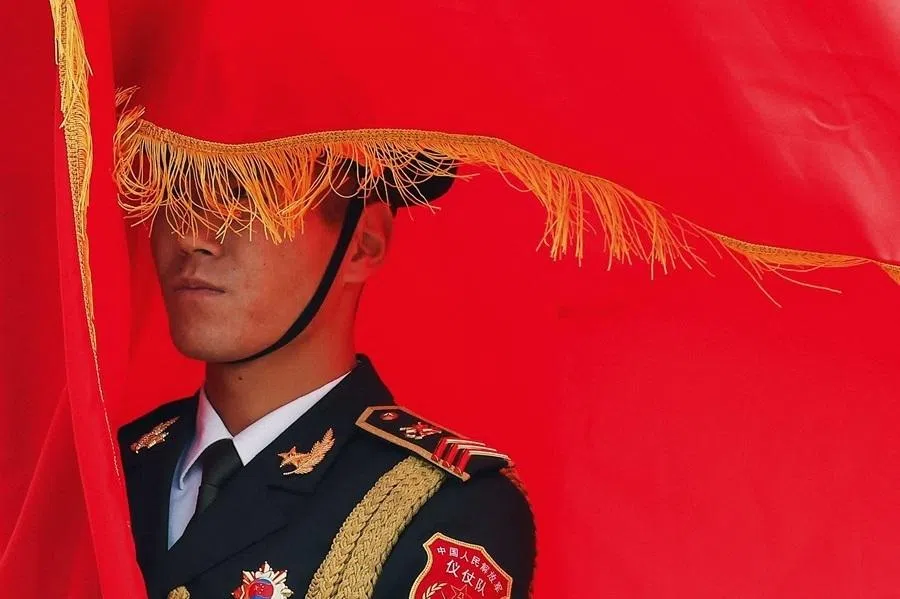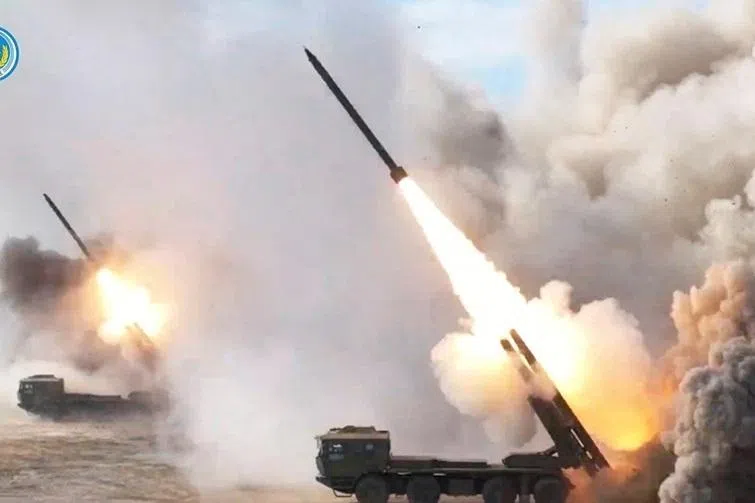[Video] Professor Yasheng Huang: Xi Jinping and the challenge of reform
Professor Yasheng Huang, Professor of Global Economics and Management at the MIT Sloan School, speaks with ThinkChina editor Chow Yian Ping in a wide-ranging interview, covering topics including global instability, the result of the US elections and China’s political system. The following is an edited transcript of part two of the interview.
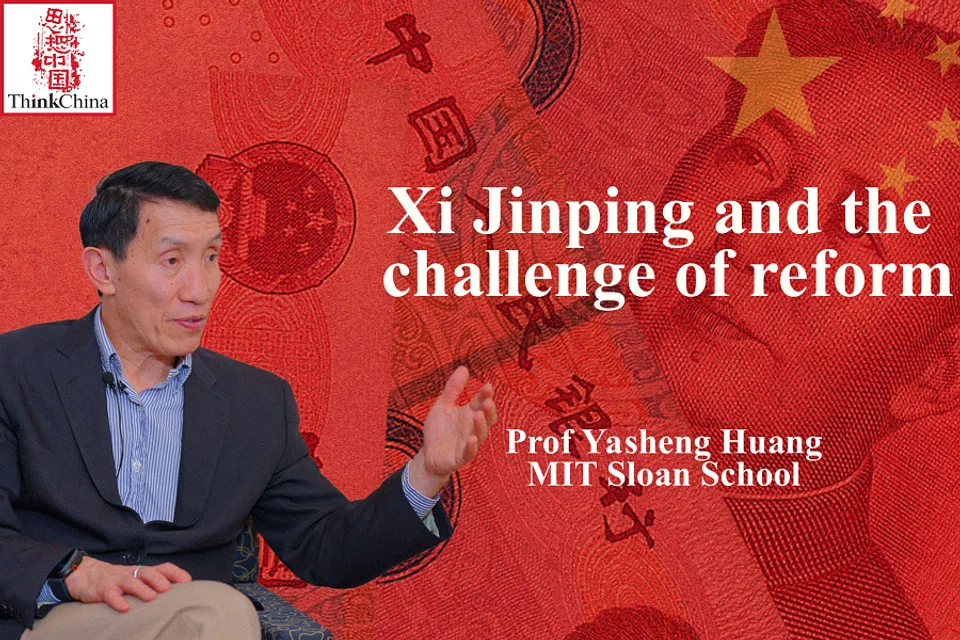
On one side of the globe, newly elected US President Donald Trump aims to make America great again, while on the other, Chinese President Xi Jinping foresees the rise of the East against a declining West. Both leaders face domestic challenges and foreign relations issues. In this era of disruptions and unpredictability, who is better positioned to lead the future world order? What could derail China’s current development trajectory?
The ThinkChina team travels to Boston to speak with Professor Yasheng Huang, Professor of Global Economics and Management at the MIT Sloan School, to gain his insights. Professor Huang is also the author of The Rise and Fall of the EAST: How Exams, Autocracy, Stability, and Technology Brought China Success, and Why They Might Lead to its Decline.
China’s growth in the next five years
Chow Yian Ping (Chow): You talked about the stability in China. What are the potential factors or the key factor that could actually disrupt China’s development trajectory under President Xi Jinping and the CCP?
Yasheng Huang (Huang): So the stability scenario is that the private sector is coming back and begins to generate growth, generate employment. However, it is doing it in an environment where China does not have a large amount of foreign direct investments, a large involvement of international capital markets. So it’s very different from the 1990s and 2000s, when the Chinese private sector was growing, but in the background, there was very strong international participation.
It may maintain a low level of economic growth. That’s it. To me, that’s more likely the scenario that we’re going to see in China in the next five years.
Now, after the crackdown and the Covid lockdown, the private sector today is much weaker than it was before. But, if you restore some basic confidence, they may come back in a modest way. But the contribution to economic growth is going to be modest rather than robust. But that may reverse the decline. It may maintain a low level of economic growth. That’s it. To me, that’s more likely the scenario that we’re going to see in China in the next five years. So China may avoid a crash if the private sector comes back in one way or the other.
But it’s not enough to restore the robust economic growth that it had before. And China needs stronger growth to maintain large employment, to maintain the operations of the government. The Chinese government spends a lot of money on all kinds of things — on programmes, Belt and Road, and infrastructures. You need robust economic growth for the Chinese government to maintain itself, to spend money on the programme, so just sort of a simple maintenance mode is not going to be sufficient. So there’s always going to be some tension. But I think it will be more stable than it was a year ago, given that, clearly, Xi Jinping probably has thought about his policy toward the private sector, and he may have changed his opinion about the private sector.
Chow: So the economy will be the key issue there, getting the economics right.
Huang: Yeah. So I think for China, and increasingly for the US as well, the economy is the key.
Because the economy is, for China, almost the only thing that is not 100% controlled by the government. In the US, that’s clearly the case. Right? The capital market, the inflation, the prices. The reason why Trump didn’t pursue the 25% tariff on Mexico and Canada is because of the capital market reaction.
In China, there is not such a big differentiation between politics and economics, but still, relative to anything else — relative to universities, social organisations — the economy has a little bit of independence from the government. The capital market in China has a little bit of independence from the government. So the economy, in addition to providing employment opportunities to the Chinese population, also serves to convey sentiment and information to the Chinese government in a way that the political system itself doesn’t do.
Optimism over the Taiwan Strait
Chow: How about the Taiwan Strait and Taiwan status, especially now that the Trump administration is in power?
I think in the last two years, I have become a little bit more optimistic about Taiwan. The reason is that now we know that the Chinese military is incredibly corrupt.
Huang: So again, this is one area it is extremely difficult to make a prediction. So, Trump could tell China, “Do whatever you want with Taiwan.” Or he could tell China, “If you invade Taiwan, I’m going to launch nuclear weapons on you.” We just don’t know. If we don’t think about the Trump factor, we just think about the factors on the Chinese side, I think in the last two years, I have become a little bit more optimistic about Taiwan. The reason is that now we know that the Chinese military is incredibly corrupt. Two defence ministers have been purged, and there were other high-level military officers who were purged on corruption.
We always know the Chinese military is corrupt. Everybody knows that. The issue is whether Xi Jinping knows it or not. By purging these high level officers, he clearly knows that the army is quite corrupt. When you have such a level of corruption, it is very difficult to have the army as being ready and being capable to fight a war. So essentially, if you rationally think about these things, that gives me some optimism that maybe there’s no such thing as a 2027 deadline, which I think will be a good thing. The way I define peace is “peace is war delayed”. So if you can delay the war by one year, by two years, by three years, you achieve peace.
Chow: That’s maintaining the status quo.
Huang: Maintaining the status quo.
It’s very clear, maintaining the status quo is the best solution for everybody — for Taiwan, for the US, and for China. China grew its economy under that status quo. China got a lot of investments from Taiwan as well. Foxconn is a Taiwanese company. The reason why China produces the iPhones is because of a Taiwanese company: Foxconn. China used to buy a lot of chips, TSMC — it’s a Taiwanese company.
A good relationship, at least a peaceful co-existence between Taiwan and China, has been extremely important for the Chinese economy. Why would you want to sacrifice that benefit by launching a war against Taiwan? I just don’t really see the rationale.
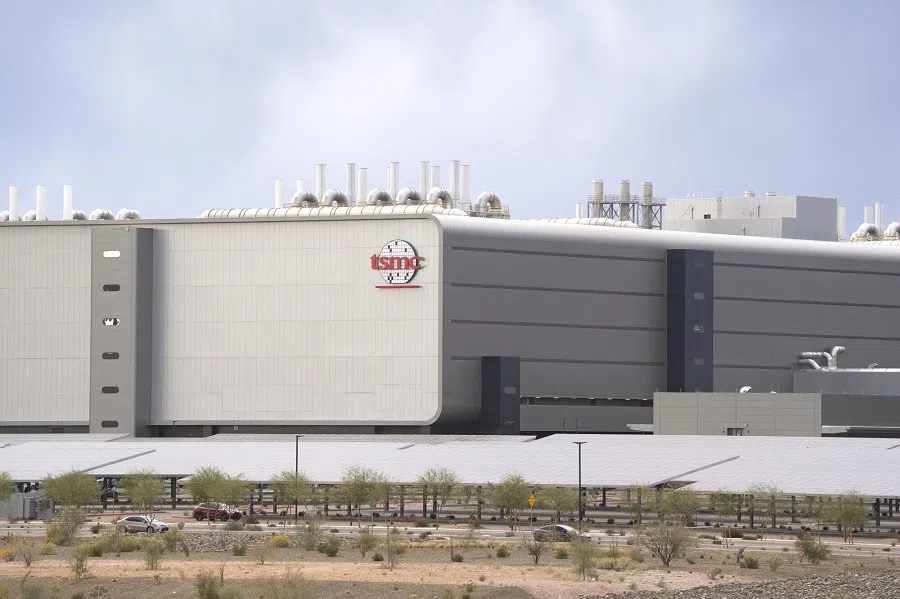
Chow: So you’re saying that without external interference, if you leave it to the Chinese and the Taiwanese, the most rational way to do that is to actually maintain the status quo and to continue a peaceful co-existence.
Huang: I think there’s no question in my mind that the status quo is the best for everybody, including for Taiwan, by the way. So there, I really am concerned about the new independence movement in Taiwan, advocating and pressing for independence. I don’t think it’s a good idea to proactively change the status quo. And you know, Taiwan also grew rich under the status quo.
Taiwan’s companies became global companies — Foxconn, TSMC — not because it is a sovereign country recognised by every country in the world, but because of this ambiguity, and because of the perception that the ambiguity is going to pay off in the form of peace and stability. So I think it is in Taiwan’s interest to maintain the status quo rather than trying actively to change the status quo. So I’m a little bit concerned about that development in Taiwan.
Succession in China
Chow: What about the succession issue in China? Is that going to be an issue? We know that President Xi has removed the term limits, and you actually talked about the Crown Prince problem in your book.
Huang: So we talked about economic stability, repairing the relationship between the government and the private sector, I think we have seen some evidence of that. But in my book, I pointed out: almost all autocratic countries struggle with the succession issue. Unless it is a hereditary system, and we can talk about Singapore, it is intrinsically unstable.
So in 2027, China is going to have another important party congress. I think Xi Jinping is going to begin his fourth term. I just don’t see how… a scenario that he’s going to step down. I may be wrong, but I just don’t see it.
We saw that in China under Mao, under Deng Xiaoping. And what Deng Xiaoping did — and it was a really a monumental achievement — he created the term limit and the mandatory retirement norm. And China had successful, peaceful transitions of power from Jiang Zemin to Hu Jintao, and then from Hu Jintao to Xi Jinping. That was actually remarkable. So in my book, I talk about how remarkable that transition was, and if you look at lots of other communist countries, you basically die on the job, and then you transition; you don’t give up your power if you’re not dead. And then, you know, China was very successful.
So my big concern now is that you get rid of that, and it is planting the seeds of instability. It requires the robust health of the top leader. But we know that human beings are human beings — that situation cannot last forever. So in 2027, China is going to have another important party congress. I think Xi Jinping is going to begin his fourth term. I just don’t see how... a scenario that he’s going to step down. I may be wrong, but I just don’t see it.
So then the issue is whether or not there is going to be a successor that is going to be nominated. In the past, one of the sources of the instability in succession politics is once you nominate a successor, that successor becomes the target. That has happened in China multiple times. That dynamic is going to introduce some political instability. So two years from now, three years from now.
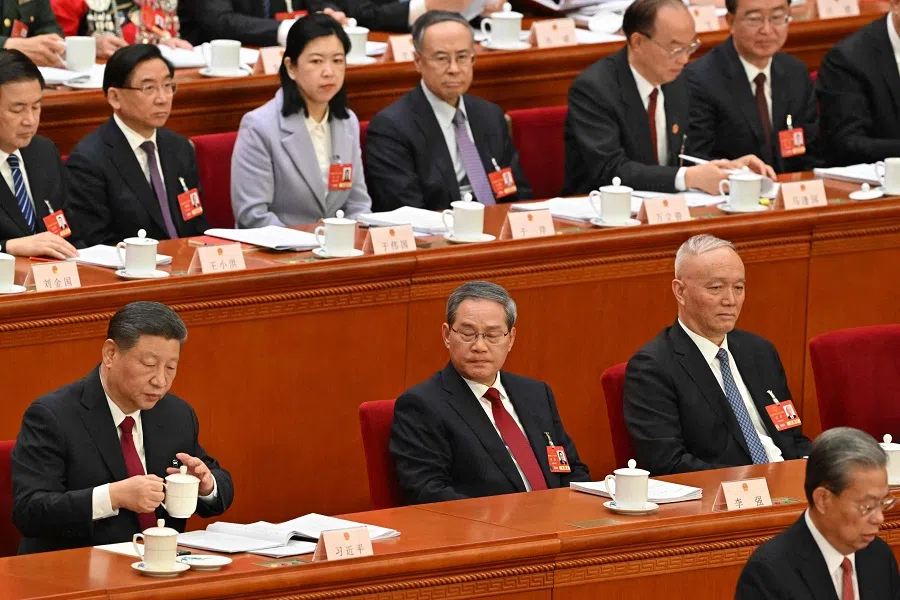
Chow: So do you see any potential successor?
Huang: I really d…
Chow: Or you’re not going to name?
Huang: Well, I really have no idea, right? So how can I know? Nobody knows. Right? But I think the absence of a clear succession plan is a cause for worry. The absence of a clear succession plan is a cause for worry.
If I make some prediction, then it will be you’re going to have several rounds of succession plans. I don’t think the first one is going to work, and maybe the second, maybe the third. And maybe the last one is going to work? Simply because there’s no time to revise the last one. This is exactly what happened under Mao.
Chow: And do you see any way that China can get around this? Or it’s just like a time bomb going to [explode]?
Huang: If I make some prediction, then it will be you’re going to have several rounds of succession plans. I don’t think the first one is going to work, and maybe the second, maybe the third. And maybe the last one is going to work? Simply because there’s no time to revise the last one. This is exactly what happened under Mao.
In 1976, his health was failing, and in the last few months, he nominated Hua Guofeng to be his successor. And then he died pretty quickly after that, so there was no time for him to change the plan. So then that one worked — in a technical sense, because Hua succeeded Mao. But it didn’t quite work in the long run because Deng Xiaoping came back. And Hua Guofeng immediately was forced to resign.
And so this is the problem in an autocracy: The last-minute plan can work in the short run, but there is no guarantee that it is going to work in the long run. Because usually the last-minute successor is a weak successor. Hua Guofeng was incredibly weak. So when you have a weak successor, even after he has succeeded, it is not going to be a stable situation.
Chow: So that’s going to be a possible scenario that we could see in the future in China happening?
Huang: If everything is along the line that we have seen in the past ten years, yes. Because there’s no clear succession plan, and there’s no clear institutional mechanism. Then the issue is really the personal health of the leader. That’s something we don’t really have any knowledge about. So essentially the political stability is going to depend on the longevity of the leader.
Chinese inventiveness declined before the Ming dynasty
Chow: In your book, you have also presented this very fascinating figure, which is called the CDI — the Chinese Dynasty Inventiveness Index over time. It reveals that China’s inventiveness started declining as early as the 6th century, well before the Ming dynasty, which a lot of people think is the time when China’s inventiveness started declining. So how did you come to this conclusion?
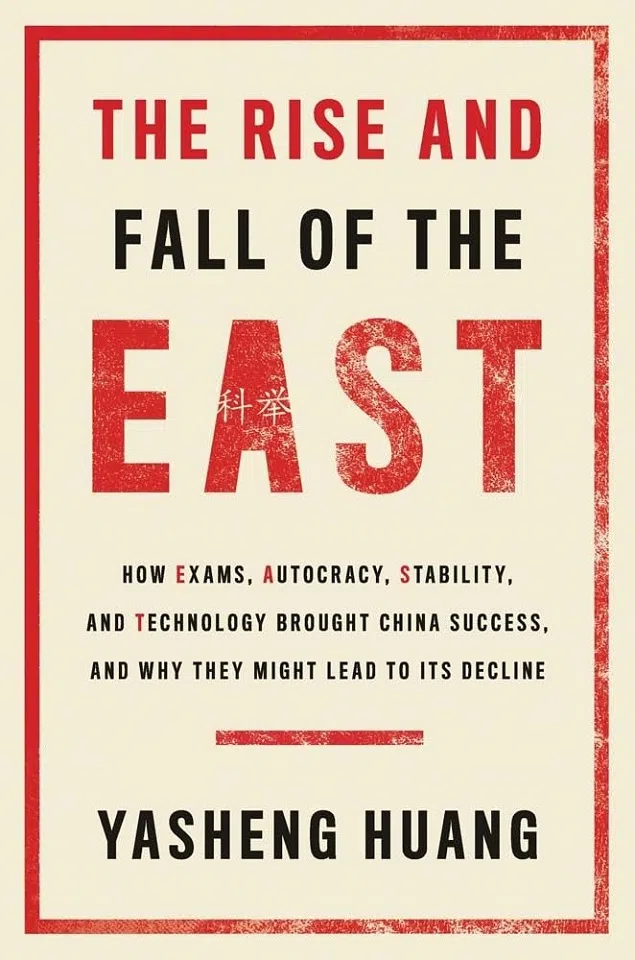
Huang: I’m not a historian, but I have always been fascinated by some really consequential historical questions. And one of those questions from my student days is why China was at one point in time advanced in technology and in science, and then it didn’t continue to develop and grow into a strong economy, strong scientific and technological power? And this is known in the academic literature as the Needham Question. Joseph Needham.
I was always fascinated by that question, but I didn’t really have a way of studying it. And then more than six years ago, almost eight years ago, it occurred to me that the people who discuss this issue, about the Needham Question, they don’t really use data to analyse Chinese technological development. By the way, including Joseph Needham himself. So if you read his books, he doesn’t really analyse the patterns of the materials that he has assembled. He never really tried to create a database to analyse the material, so it was more like commentary.
And we have this CDI measure, which is basically a very simple measure — the number of inventions divided by the population for a given dynasty. Han dynasty, Song dynasty, Tang dynasty.
And then I found out the reason why the Ming dynasty was singled out as the turning point was really two things: One was the voyage ban, the famous voyage ban. The Ming dynasty had the famous seven voyages led by Zheng He, and then the emperor stopped the voyages. So people used that as a turning point.
And the other piece of information that people relied upon to conclude that Ming was the turning point was really the rise of the West, the scientific revolution in the West. Copernicus and Galileo. And then they say, OK, the West rose in the 16th century, 17th century; China must have declined. So there was not a direct demonstration of the Chinese decline, other than citing the voyage ban.
China didn’t have more voyages, but they could have other technologies, right? So I don’t quite see the logic why the voyage ban necessarily was going to demolish technologies in agriculture, in other areas. I always had these questions in mind, but I didn’t have a good way of studying them. And then it occurred to me, since I’m a professor, right? I had my team.
Maybe there’s a way to convert the text and the materials assembled by Joseph Needham and others into a database and look at the statistical pattern. By the way, there were Chinese historians, researchers who did this, but their research was very limited. They may have like 600 inventions and all of that. So I began this research project to use — I wish I could say that I used AI; I didn’t use AI because it was eight years ago — to really just use a lot of manual labour in China to construct this database. And we have this CDI measure, which is basically a very simple measure — the number of inventions divided by the population for a given dynasty. Han dynasty, Song dynasty, Tang dynasty.
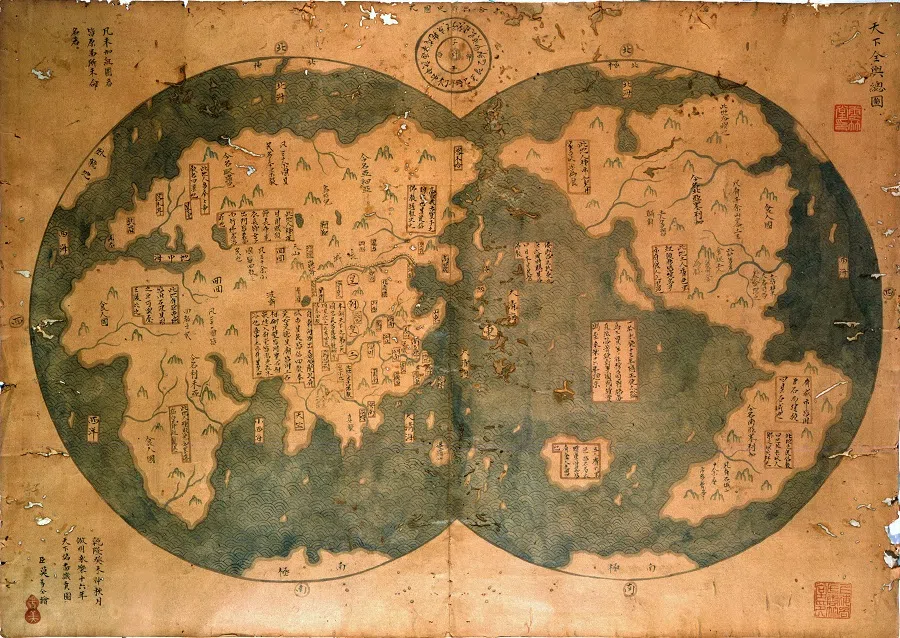
I have never challenged the view that the Ming dynasty was the turning point. I kind of bought into that. And my motivation was using data to prove that point. But when the data came out, the pattern was clearly different. The decline was much earlier.
... after the 6th century, China became more autocratic, more unified, and more ideologically homogenous, and that contributed to the technological decline. In the Ming dynasty, there was another round of ideological homogeneity — that contributed to a further decline.
So there were three waves: Tthe peak was before the 6th century, and then there was a decline. The Ming dynasty, definitely there was another decline, but that was not the first time it declined — it was the second time. So basically if you look at the graph, initially at this level, now at this level, and the next level.
And then the next question is: how do you explain the first decline? The second decline, you know, maybe the voyage ban and these things. But nobody really knew that there was a first decline, so therefore they didn’t explain it. And then that question led me to look at what happened in the 6th century.
There were lots of things going on in the 6th century, but one of the key developments was the keju (科举) system — the establishment of the civil service exam system. So that’s how I kind of packaged all these different pieces of information and matched the timeline of the keju system with the timeline of technological development.
Essentially, after the 6th century, China became more autocratic, more unified, and more ideologically homogenous, and that contributed to the technological decline. In the Ming dynasty, there was another round of ideological homogeneity — that contributed to a further decline.
Chow: So would you say that after the Sui dynasty, the Chinese priorities changed? Because previously they were like many different nations/kingdoms.
Huang: I wouldn’t use the word “priority” because I think before the Sui dynasty, which was established in 581 — some people say 591 or 587, roughly late 6th century — China then had a very divided situation. Different kingdoms, different ideas, and different ideologies.
If people are watching this interview, they may say, “Oh, how do you explain the Han dynasty?” Because the Han dynasty was a unitary empire and one government, rather than a divided government, and one ideology, Confucianism. So there was a famous decision made by the Han Wudi (汉武帝, Emperor Wu of Han) to declare Confucianism to be the sole official ideology of the imperial court. A lot of people believe that ideological homogeneity started with the Han Dynasty. Again, this is where data really matters.
When people say that ideological homogeneity started with the Han dynasty, they didn’t really look at data -– they just looked at the proclamation by the emperor. So it is a little bit like if you look at China today, officially speaking, the Chinese constitution says China is a Marxist-Leninist state. But does that mean that everybody believes in Marxism and Leninism? So just to have an official ideology to be Confucianism doesn’t mean that everybody — even including elites — necessarily shares that ideology. So this is where data really matters.
There was a paper by a number of Chinese historians that used the data of Confucianism, Buddhism and Taoism, and they mapped the importance of these ideologies from the Han dynasty all the way to the Qing dynasty. In fact, during the Han dynasty, Confucianism — by their measure — only accounted for about 36% of the official documents. The most important ideology was not Confucianism — it was Taoism.
So during the Han dynasty, there were two almost equally powerful ideologies, not one ideology. You only see the unification of ideology emerging in China around the 9th and 10th century, under the Song dynasty. By this measure. And keju started that process.
Innovation in China today
Chow: So after the Sui dynasty, according to your book, we can see that China’s inventiveness continued to decline. But now, in China and under the CCP, you are actually seeing a lot of new innovations, a lot of inventions, like DeepSeek that was just launched. So are we seeing a surge –- regaining momentum in inventiveness? And the CCP is also a unified ideology?
So essentially, what happened during the open era of China was: politically, it was unified, but economically, China was quite open. Very open.
Huang: This is a very good question. Before the 6th century, China was not a democracy. China was an autocracy, and there were different kinds of autocracy. But China had a high degree of ideological diversity. Taoism, Buddhism, Confucianism, and Legalism. That ideological diversity was one of the reasons why Chinese inventiveness was at a higher level.
Now you look at China today. Yes, CCP is an autocratic system — no democracy, no free elections, no free press — but let’s look at the globalisation that has happened in China since 1978. Foreign ownership, Chinese students coming to America, Chinese companies working with foreign companies. Huawei worked with… if you have a Huawei phone, next time you look at its phone, you look at its camera, it says “developed with Leica”. Right? Before 2018, Huawei had over 120 American suppliers. Huawei worked with Taiwanese companies and American companies, and British companies.
So essentially, what happened during the open era of China was: politically, it was unified, but economically, China was quite open. Very open. Economic collaborations between Chinese universities and American universities. This is similar to the period before the Sui dynasty. Before Sui, it wasn’t open to Europe, it wasn’t open to the West, but in terms of ideology, it was open. So some degree of openness.
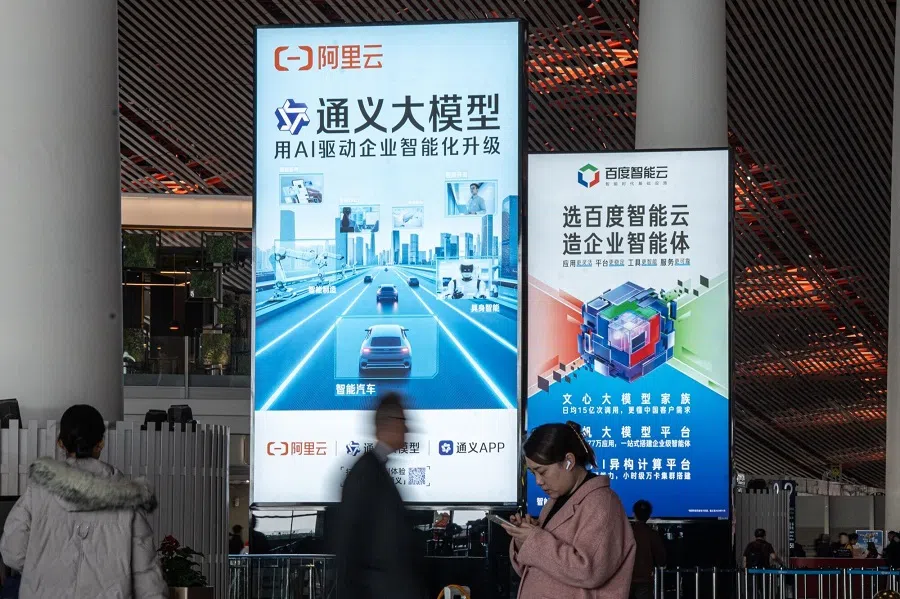
So if you look at Alibaba, Tencent, Baidu, they were all backed by Western venture capital funds. Western participation in the rise of the Chinese high-tech companies was incredibly important. Pinduoduo, in the same way, was backed by Western venture capital companies. BYD was backed by Warren Buffet. And where did BYD get its design, the battery? Tesla made it open source. If you look at many of these Chinese EVs, they were based on the Tesla open-source model. DeepSeek, we now know for sure, is based on OpenAI. It was based on the foundational model by OpenAI. And some even say that their training relied on the dataset maintained by OpenAI.
In the last four or five years, definitely that collaborative space has decreased, but it is still there, right?
So these successful stories are a result of Chinese engineering, Chinese capabilities, and an open, collaborative environment that China has created. In the last four or five years, definitely that collaborative space has decreased, but it is still there, right? So if you look at DeepSeek, it was trained on the chips produced by Nvidia, H100 series and H800 series. And DeepSeek itself believes in open source, which is really a Western, American business model.
It is very important when we talk about these successful stories to be precise about why they succeeded. They succeeded because there is still collaboration. The space is shrinking, but it doesn’t mean that it has gone out completely.
Chinese underperformed against its true potential
Chow: So with these Western sanctions, US sanctions, and then these exchange restrictions, do you see this space diminishing? And does that mean that China’s inventiveness will go down again?
Huang: Remember, China has 1.4 billion people. And China has an incredibly high level of human capital. And the Chinese successes are, relative to the potential of the country, relative to the size of the country, relative to the size of its economy, are still quite modest. So let’s be very clear about this. China has 1.4 billion people, so many college graduates, so many graduate students, a large economy, the second largest economy, vibrant entrepreneurship, right? So definitely there would be success stories: DeepSeek and BYD, Huawei, and maybe Lenovo, right? And Dajiang, DJI in drones.
... what is important is not the absolute number, it’s that number relative to your potential. I still think by that measure, China is underperforming.
So if you ask a different question, let’s just say that the country is so entrepreneurial and the country is fully collaborative, connected with the global economy, and the country rewards risk taking, would you produce more success stories than the ones I just listed? Or would you produce less? So I think for us, what is important is not the absolute number, it’s that number relative to your potential. I still think by that measure, China is underperforming.
Because this is one of the most entrepreneurial countries in the world, has a very large entrepreneurial base, a very high level of education, a lot of money, and interestingly, Chinese young people are quite risk taking. Well, they have made some impressive achievements, but this is not like an across-the-board success story. So it’s really that measure.
Look at the vaccine development against Covid-19 — it was utter failure. But the vaccine development is closer to fundamental science, and truly breakthrough. The Chinese vaccine on Covid clearly has not succeeded as compared with Moderna and Pfizer, if you just look at the data. So I think we need to calibrate our judgement, acknowledging some really really impressive achievements, but also recognising that the country may have underperformed against its true potential.
Will China’s system change?
Chow: So you’re saying that there’s some great potential that’s not released. Should China become more westernised? Or adopt some kind of democratic principles? Or be even more open? Is that the kind of direction?
... we have to accept the fact that China came from thousands of years of autocratic ideology, tradition. And for a large country like China, you have to be very careful about transitioning.
Huang: I would immediately advocate economic democracy. More private-sector driven, more market-based activities. And the government should definitely play a very important role, but relative to the role of the government today in China — because government in China today is very powerful, and they are everywhere — relative to its current functions and power, I think the government in China should delegate more to the market, more to the private sector businesses. So I would advocate economic democracy, economic liberalisation. Like, immediately.
On politics, it’s a little bit tricky because we have to accept the fact that China came from thousands of years of autocratic ideology, tradition. And for a large country like China, you have to be very careful about transitioning. So you don’t want to have an abrupt change and disruption in terms of politics and in terms of social institutions. But I think in the long run, the system should become more and more open, rather than less and less open. Once you have more openness, I think it is good for the economy, it is good for the welfare of the Chinese people. But it doesn’t mean that overnight it has to be a democracy, it has to be an electoral system.
I talk about the 1980s in my book. 1980s China was not a democracy, but it had intra-party democracy, it had collective decision making. It had more free speech among the elites, among the intellectuals, even without elections. Right? And China at that time was thinking about passing a law on free press and free media. So, I want to see China move in that direction.
I don’t really care how fast it moves, as long as it is moving in that direction. Like the 1980s. I think then, that can work. So if you look at Taiwan, if you look at South Korea, in the end they all transitioned to successful democracies without a lot of chaos, without bloodshed, without turbulence. So I would argue that you want to make the political changes when the economy is still performing, as opposed to when you’re forced to make that change, as we saw in countries like Bangladesh, Libya, and these other countries. Then that’s the most unpredictable kind of change.
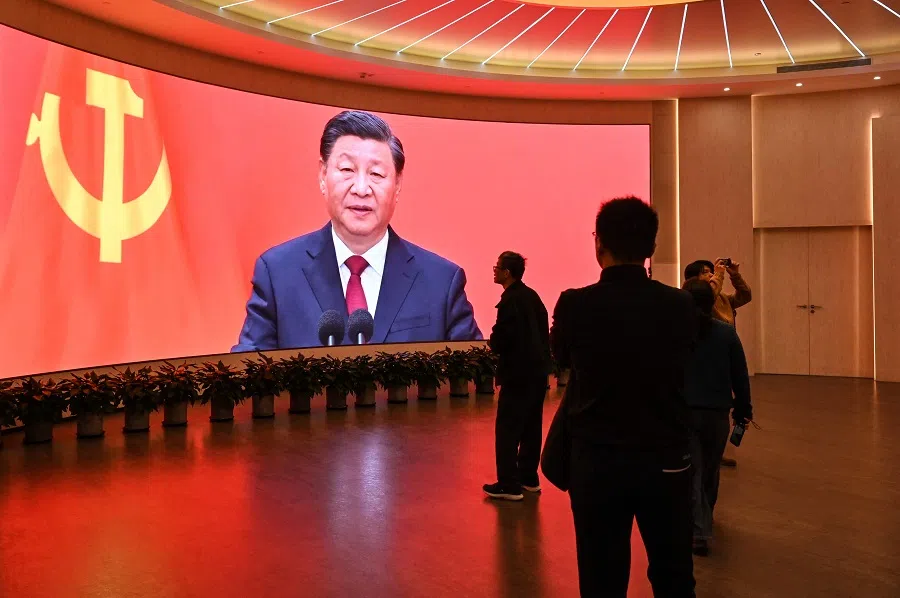
Chow: Do you see a high chance of that happening under President Xi?
Huang: (Sighs) The honest answer is I don’t. I don’t. And the question is, in another five or six years, where the Chinese economy is going to be? And whether or not it is going to be in a maintenance mode. You can imagine the system to continue for a number of years, repairing this, repairing that. I honestly don’t know, but I don’t think the probability is very high. I don’t think so.
I think we’re entering into an era where we have both declining East and declining West.
What’s our future like?
Chow: So is this a good time to even talk about which country… because in the past, we always talked about China rising and posing this threat to the US system. And so each one is pushing its own way, its own system to the world. And we’re talking about this competition between the two. Do you think now, it is still in that kind of situation, now that the US is also dismantling a lot of its institutions, and China is facing its own problems as well?
Huang: Well, so there is a phrase “rising East and declining West”. I think we’re entering into an era where we have both declining East and declining West. So if you just look at the GDP ratio of China in the past four years relative to the US, that ratio has declined from something like 70% to now, if I remember correctly, 65%. So the East was clearly not rising, relative to the West.
But now we have Trump. And I think he’s actively destroying the West. He’s dividing the US with other European allies, with Canada, with Mexico. So this is why I’m pessimistic, as I expressed earlier. I just don’t see in the next ten to 15 years to be an era of robust economic growth and broad-based development. And I see rising instability.
When the US is retreating from the rest of the world, when it is abandoning the rule of law and democracy, that is going to invite instability in many other areas of the world, and it is going to empower autocratic governments worldwide. Because they said, look at the US! The US is becoming an authoritarian government. So I think this is my scenario in the next ten to 15 years. And I just don’t see… really an upside? If that’s the scenario that is going to play out.
Chow: So where do you think humanity is headed with all these kind of shifts and kind of very pessimistic picture that you have painted there?
Huang: Well, we just have to make do and struggle. Right? And really devise our own individual solutions and answers to these questions. And the thing about sentiment is that negative sentiment reinforces negative sentiment, positive sentiment reinforces positive sentiment. I think we’re going to, maybe in four years, the US is going to change completely? That’s going to change — my view — in four years. Maybe even in two years, when the Democrats, hopefully, in the mid-term election, are going to come back and get the control of the Congress? But the best they can do is to check and balance Trump, because they are not in a position of power in the executive branch. That has to wait until 2028. By that time, maybe the damage is too severe to be completely reversed. So that’s why I’m pessimistic. And on the Chinese side, I don’t see a very robust scenario of economic resurgence, despite all the technological successes that they have achieved.
How do small nations survive?
Chow: Do you have some kind of advice for small nations like Singapore in such a period of flux?
... Singapore in the short run may benefit from some sort of global reallocation of capital. But in the long run, Singapore is going to suffer, just like everybody else.
Huang: Singapore has been a beneficiary of the rise of China and the stability provided by the United States. And Singapore has benefited from that. In the short run, Singapore may benefit from the economic downturn in China. Singapore is getting Chinese capital, family offices, capital investments from China. A lot of these people who are concerned about what is going on in China are looking for a safe harbour. Singapore: rule of law, predictable government, meritocracy, and very capable government. Singapore is just incredible in terms of how meritocratic and how capable the government is. And problem solving. Pragmatic.
Essentially, those attributes that the Chinese entrepreneurs thought that they had in China — problem-solving government, dedicated to GDP growth — Singapore still has those. So Singapore in the short run may benefit from some sort of global reallocation of capital.
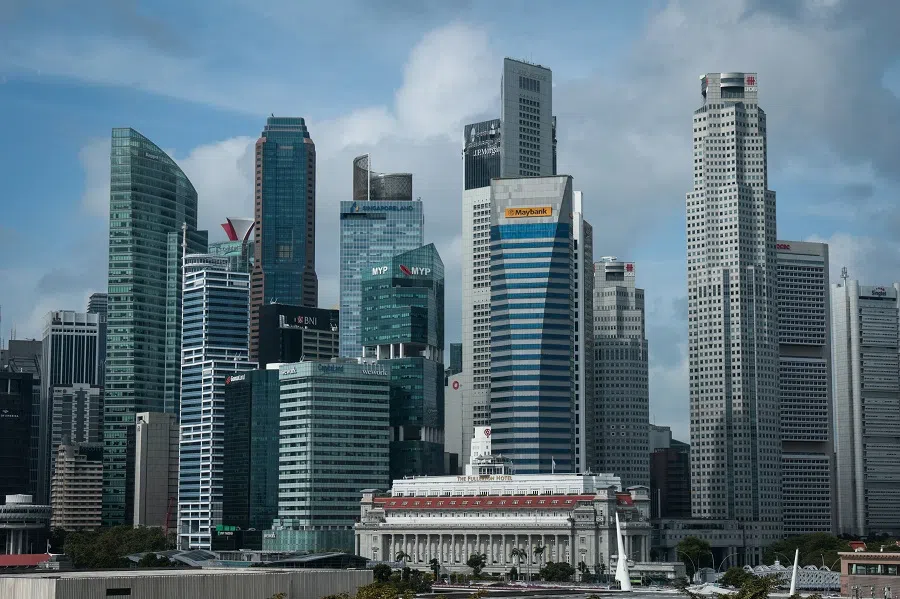
But in the long run, Singapore is going to suffer, just like everybody else. When the global economic growth is going to slow down, Singapore may protect itself better than other countries. But I can’t imagine that you can completely insulate yourself from these global trends, especially the Singaporean economy, because the Singaporean economy is so open. Trade-to-GDP ratio is something like 400%. Right? So such an open economy depends on global trade, global economic growth. Nobody is going to be able to get away completely from the downside. But I trust the Singaporean government to be more able to deal with the downside than some other governments.
Chow: The Singapore government has always talked about not taking sides in such a situation. Do you think this space is diminishing?
Huang: Definitely. So again with Trump, we don’t know, right? One point of contention, at least between the Biden administration and China, was technology control. And then they found out that Singaporean companies were buying Nvidia chips and shipping them to China. So essentially the Singaporean company was acting as an intermediary and used its status as a free trade country to benefit from the tensions between the US and China.
Donald Trump, I don’t know where that policy is going to be, but from the US government perspective, if they really strengthen their export control of technology, they have to go to Singapore and tell Singapore to shut down these companies and to control these companies. Then Singapore has to take a side. What can you do? How can you avoid making a decision on this matter? But with Trump, he may say, oh, I can give you any technology you want, and you do other things for me. So maybe that will not be an issue. If Trump goes down that path.
Chow: So maybe if you can strike a good deal?
Huang: Yeah! So if Singapore buys more from the US, Trump may be happy, right? He doesn’t care that a chip is going to be shipped through China. (LAUGHS) Why does he care? He doesn’t care. And he may demand Singapore to buy more from the US. He may demand Singaporean companies to make more investments in the US. So that is going to put Singapore in an awkward position.
Singapore now is the biggest investor in China. Singapore also invests in the rest of the ASEAN region. Do you really want to make investments in the US for political reasons? The Singaporean government has always been famous about making its investment decisions on the basis of economics and business and finance. Now you have a political demand.
So Trump is demanding TSMC to make investments in the United States. He’s making demands on others, SoftBank and other companies. He may turn to Singapore and say, you make US$50 billion of investments in Florida, or something like that. So at that moment, what is the Singaporean government going to do? So I kind of worry about that scenario for Singapore.



![[Big read] When the Arctic opens, what happens to Singapore?](https://cassette.sphdigital.com.sg/image/thinkchina/da65edebca34645c711c55e83e9877109b3c53847ebb1305573974651df1d13a)
